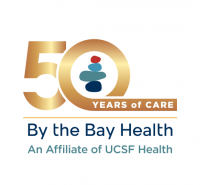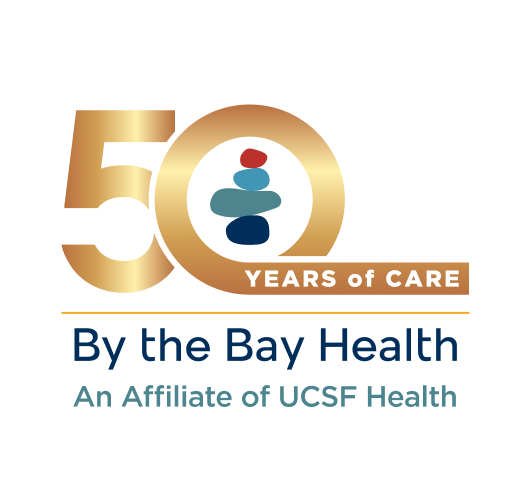“The most rewarding aspect of my job is helping patients and to give them hope, peace, comfort and the support they need. Seeing that smile on their face and the thumbs up they give me when they are comfortable and happy- that’s what makes my day. That’s why I am passionate about this job. I love helping people. I love seeing that smile as I walk out the front door.” – Rosa Mata, Hospice Aide
 While many in the Bay Area remain sound asleep, Rosa Mata’s alarm clock rings at 5 a.m. sharp — signaling the start of a new day. As the morning coffee brews, Rosa turns her on her laptop to review her schedule for the day, along with the patients she’ll be visiting throughout her shift. And while she is keen to the long day ahead of her, she is driven by the thought of her ability to provide quality care to patients who need it most, especially during this pandemic. With her patients’ best interest in mind, she makes her way to San Francisco, hoping to touch her patients’ hearts through her work.
While many in the Bay Area remain sound asleep, Rosa Mata’s alarm clock rings at 5 a.m. sharp — signaling the start of a new day. As the morning coffee brews, Rosa turns her on her laptop to review her schedule for the day, along with the patients she’ll be visiting throughout her shift. And while she is keen to the long day ahead of her, she is driven by the thought of her ability to provide quality care to patients who need it most, especially during this pandemic. With her patients’ best interest in mind, she makes her way to San Francisco, hoping to touch her patients’ hearts through her work.
As Rosa makes her way to San Francisco, Sandra Tavares and her fellow hospice aide schedulers are getting their day started by reviewing voice messages, after-hour reports, and gathering the necessary paperwork to schedule visits in a timely manner so that Rosa and other hospice aides can assist our most vulnerable patients with organized efficiency. These hospice aide schedulers are the backbone of the department as they keep the wheels turning and play the role of guardian angels. So much of their work is done behind the scenes to ensure the safety of both our patients and hospice aides, while being our telephonic lifeline to all of Hospice by the Bay patients.
Prior to COVID-19, all HBTB employees faced challenges in their work, but COVID-19 brought forth new set of obstacles that are often uncontrollable, in which aides and schedulers have faced with courage and compassion. Given the mobile nature of the work done by hospice aides, they often rely on public institutions, coffee shops, cafes and different facilities to take their breaks, grab a snack, use the restroom, or write their reports between visits.
However, current shelter-in-place restrictions have barred them from utilizing these resources and Hospice Aides now find themselves spending hours in their cars, and experiencing rejection and isolation from members of the public who are hesitant to get close to aides who are often dressed in their PPE.
Aides now also now find themselves scrambling for 30-45 minutes to find a public restroom, something many take for granted, and aides more often than not have been rejected by most public spaces when asked if they can utilize the restroom. Rosa says, “I explained ‘I am a healthcare provider, I am out in the field, I do not have a bathroom’, but they still say no and I find myself going from place to place. I feel so helpless in those moments. One day I felt like crying.”
Having to experience such rejection and isolation from the general public when caring for patients during a pandemic can be overwhelming, but the compassion that our aides and schedulers hold in their hearts allows them to understand why individuals have become fearful. Overtime, aides and schedulers have found that open communication is key to obtaining trust as they witness individuals becoming more comfortable being in their presence when discussing protocols of hand washing, masks, PPE, etc., with more and more patients requesting for their return once they have witnessed these safety protocols being exercised within their homes.
Communication and safety precautions have highlighted the importance of human connection during COVID-19. Our aides and schedulers continue to create meaningful relationships and bonds with the patients and families they serve. While their work environment has become more isolated, our patients and families have welcomed them with open arms, albeit at a distance for the time being. Sandra Tavares describes witnessing the relationships hospice aides and schedulers form with patients/families as being the most rewarding aspect of her job, “Patients say that they [hospice aides] brought a smile to their face and gave them back something they did not have for a while. Hearing that feedback and having those types of conversations is what makes everything worth it.”
These bonds and relationships are truly meaningful for the lives of our patients, and many of them consider aides as friends and sometimes even family. Rosa reminisces on the relationships she has made with patients and describes a particular patient interaction that was truly touching in which the patient told her “When you are here I am comfortable. When you are here, you make me smile. You lift me up when I feel down. I have someone who is going to listen to me and help me. You are my friend. You are not a caregiver, you are family.” Hospice aides and schedulers have proven that despite a pandemic, forming meaningful relationships and obtaining trust is possible.
The work that is done by both hospice aides and hospice aide schedules is profoundly important, as described by Rosa, “It’s the beauty of life to help someone in their most challenging and difficult time of life.”

